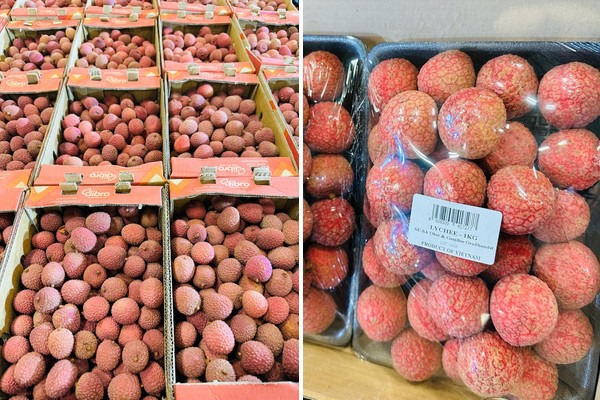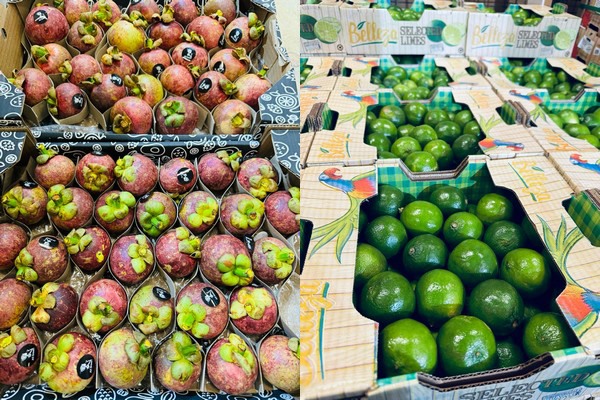As the last shipment of lychees from Madagascar has come in, the season for this delicate tropical fruit is nearing its end. Sedat Bayburt, CEO of SE-SA, a company based at Hamburg's wholesale market, observes that lychees have now become a staple of the winter fruit range. "Since the start of the season about two months ago, we have been able to sell two to three pallets of 480 boxes each week. A few years ago, this product could not be traded on such a large scale. It is a sign that the basic demand has increased."
Bayburt reflects on a successful campaign. "We supply the goods to retail and wholesale customers as well as the catering industry. What helps is that lychees from Madagascar can be offered at affordable prices." At present, lychees from Madagascar are priced around 8-9 EUR/2 kg, while air-freighted lychees from Mexico or Vietnam are traded at box prices around 25-30 EUR/2 kg.
 Lychees from Madagascar (l). After the season ends, the focus will shift to produce from Vietnam (r).
Lychees from Madagascar (l). After the season ends, the focus will shift to produce from Vietnam (r).
Good demand for exotic fruits and limes
SE-SA's winter offerings also include unusual exotics like mangosteen, grenadilla and passion fruits. Bayburt: "The basic demand for fruits and vegetables is simply higher in December. All exotics were quickly sold in the pre-Christmas period and even after the holidays, the demand remains fairly constant. So, we are less affected by purchasing restraint; on the contrary."
Limes continue to be all-year-round bestsellers at the stall, Bayburt continues. "We currently offer the market-standard Tahiti lime from Brazil, which is available in various qualities and price ranges. Even though the demand is slightly lower compared to summer, we see a good, consistent sale. In summer, however, it occasionally happens that the goods are scarce and expensive. In the long term, we have noticed that the basic demand for limes in retail has increased since the start of the pandemic, which is why retailers now sell the fruit by the box instead of individually. The same applies to items like turmeric and ginger."

Mangosteen from Colombia (l) and Tahiti limes from Brazil. In summer, Se-Sa also trades Persian limes.
Red basil gaining importance
Over the years, SE-SA has become a hub for herb imports at the local wholesale market in Hamburg. During the cold season, they offer about 25 cut herbs from Israel and Kenya. "This category also records a high, constant demand. Basil is the most popular item, closely followed by rosemary, thyme, and chives. Interestingly, red basil is gradually gaining importance," says Bayburt, who also points out the war situation in source country, Israel. "We are still getting enough goods from Israel, as well as dates from Palestine. Therefore, the impact of the war is still somewhat limited."
For more information:
Sedat Bayburt
SE-SA Fruit & Vegetable Wholesale
Hamburg Wholesale Market
Phone: +49 (0) 40 58 96 56 56
Fax: +49 (0) 40 60 56 28 79
Email: [email protected]
https://www.sesa.hamburg/
